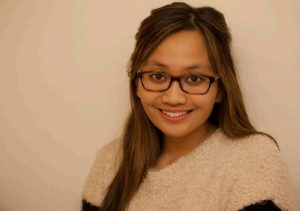By Angelica Recierdo, A & E columnist
Patient K.R. is one of the longest-staying patients I have cared for during my practicum at Boston Health Care for the Homeless Program (BHCHP) in the respite unit. He is a 74-year-old Caucasian male with recently diagnosed (less than one year) end-stage lung cancer. He is a daily smoker (half a pack) and is thin and frail with disheveled white hair.
In the unit, he mostly keeps to himself and rests in bed. He suffers from severe chronic chest wall pain that is only relieved by round-the-clock Oxycodone and Fentanyl patches applied every three days. He has a complex relationship with pain in that he sometimes refuses his pain medications, sometimes begs for them when he knows they are not yet due and sometimes tries other remedies. I recall a time searching the whole building for hot packs for him and not finding any. K.R. was resourceful and created his own out of hot washcloths, fashioned together with rubber bands and microwaved for additional heat. The most resourceful people I’ve ever met were people who have lived out on the streets.
During one day shift, K.R. was scheduled to go to Tufts Medical Center to receive treatment and meet with his oncologist. Due to his condition, he was required to have a clinical escort with him during the appointment. No other personnel were free at that time to accompany him, so I reluctantly volunteered. Up until that day, I hadn’t left the floor or building with any patient or spent one-on-one time with anyone for more than an assessment or dressing change. K.R. is also known to be a little irritable with staff due to the pain he tries to suppress, and I was a little concerned we wouldn’t get along. He jokingly said he would borrow me for the day so we can “go on an adventure.”
We boarded a little bus used to transport BHCHP patients to outside appointments. As we waited, the receptionist reminded him that after his appointment, he had to remain a safe distance from pregnant women and young children. K.R. took smoke breaks whenever he could, making me wonder how lasting his habit must be that even during radiation and chemotherapy he cannot – or will not – quit. It was in these quiet moments sitting next to him that I’ve felt more like a nurse than during any other patient encounter. Without a screen, chart or agenda, I offered him the basics of humanity and nursing – my company, an empathetic smile and listening ear, and my genuine concern.
On the unit, I thought of K.R. as an irritable man who was dying in pain of lung cancer. Outside, I saw him in a different light. I learned he had a sense of humor, that he has a son my age and that he’s lived in Somerville his whole life. While the oncologist assessed him, I learned that he lost 70 pounds and realized that he must have looked like a completely different man before his diagnosis. We learned together that he now requires supplemental nutrition and that his tumor had grown two centimeters and was eating at his ribs. The oncologist expressed her expert opinion that K.R.’s body could probably only handle one more round of radiation. He nodded in approval of it, of trying anything at all, like a soldier at war with his own body.
He left the appointment with a prescription for Ensure and a CD of his latest PET scan showing his tumor. K.R. handed them both to me like he was rejecting the state of his health. He bought a coffee at Dunkin’ Donuts with a gift card given to him by his social worker. We waited outside for our ride and he continued to smoke as I, his nurse, sat next to him. His ability to detach himself from his disease was concerning to me as a clinician but somewhat inspiring as a fellow human being. It was challenging for me to know that I couldn’t do more for him. He inquired about my life, and my stories were nourishing him like an infusion of the cancer antidote that doesn’t exist.
I realized that during this experience, the only administering I did was empathy, the only assessing I did was in his genuine thoughts, feelings and actions around his illness. Before that day, I’d never accompanied a patient to such a life-changing appointment and never had a patient let me enter their vulnerability in the way that K.R. welcomingly did. During my other practicum shifts, I found myself scrambling to balance notes, assessments, medications and unpredictable events. But during my adventure to Tufts with K.R., I was able to get to know my patient and truly live in his reality, if for just a short time. That has given me more context and preparation to be a professional nurse than any chart or EMR ever could.
-Angelica Recierdo can be reached at Inside@HuntNewsNU.com









